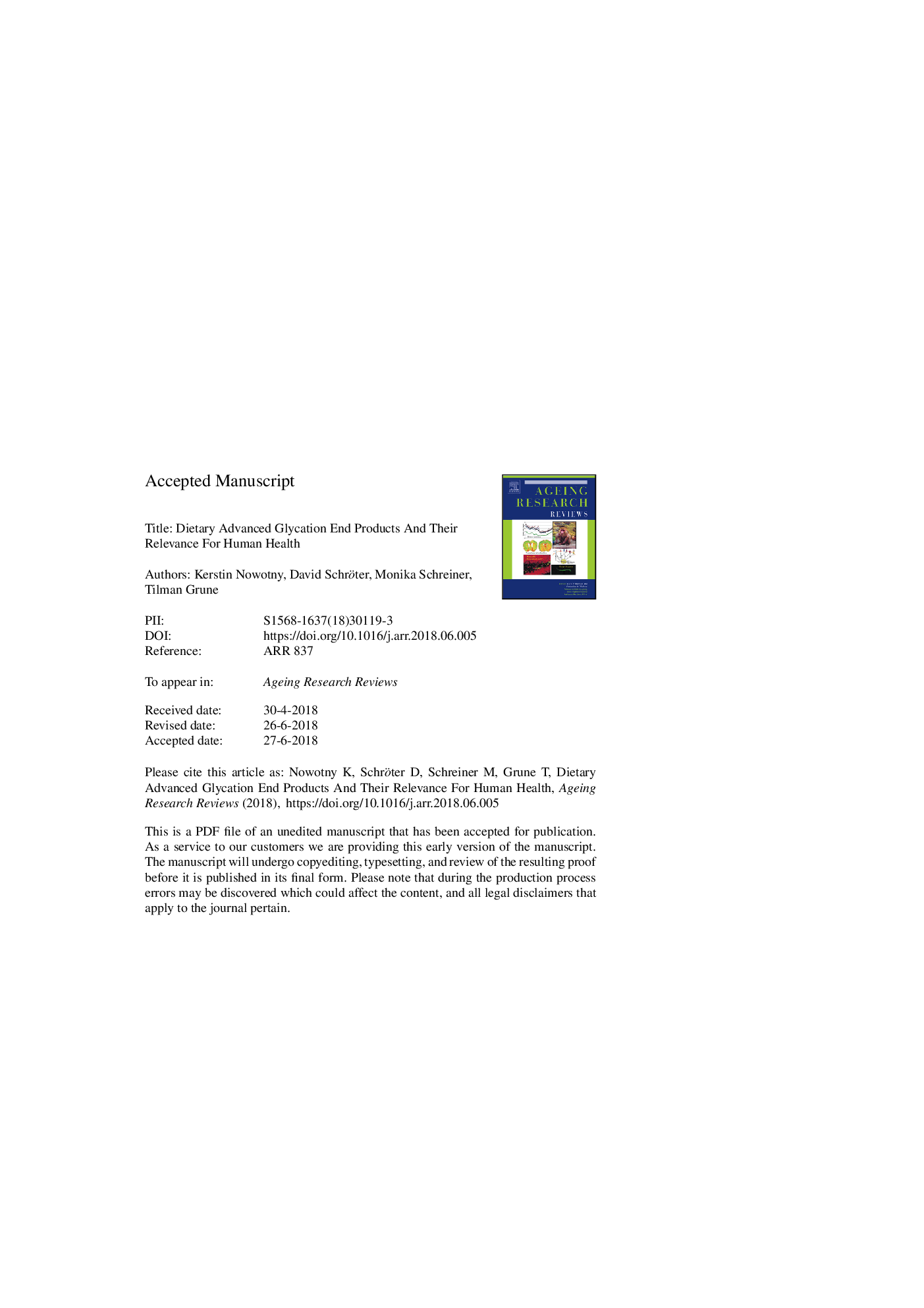| Article ID | Journal | Published Year | Pages | File Type |
|---|---|---|---|---|
| 8257091 | Ageing Research Reviews | 2018 | 40 Pages |
Abstract
Due to their bioactivity and harmful potential, advanced glycation end products (AGEs) are discussed to affect human health. AGEs are compounds formed endogenously in the human body andexogenously, especially, in foods while thermal processing. In contrast to endogenous AGEs, dietary AGEs are formed in much higher extent. However, their risk potential is also depending on absorption, distribution, metabolism and elimination. For over 10 years an intense debate on the risk of dietary AGEs on human health is going on. On the one hand, studies provided evidence that dietary AGEs contribute to clinical outcomes. On the other hand, human studies failed to observe any association. Because it was not possible to draw a final conclusion, the call for new interdisciplinary approaches arose. In this review, we will give an overview on the current state of scientific knowledge in this field. In particular, we focus on (I) the occurrence of AGEs in foods and the daily uptake of AGEs, (II) contribution to endogenous levels and (III) the effect on health-/disease-related biomarkers in humans.
Keywords
LALAGEsCMLFFQT2DMVCAM-1RCTMALDI-TOFCelITMSMG-H1MRPTNFαUPLC-MS/MSUltra violetchronic kidney diseaseESRD یا end stage renal diseaseEnzyme-linked immunosorbent assayELISAtumor necrosis factor alphaType 2 diabetes mellitusAgeingHuman healthlowdensity lipoproteinLDLmatrix assisted laser desorption ionization-time of flightMaillard reaction productAdvanced glycation end productsVascular cell adhesion molecule 1CKDfood frequency questionnaireRandomized Clinical Trialliquid chromatographyhigh performance liquid chromatographyHPLCGas chromatography
Related Topics
Life Sciences
Biochemistry, Genetics and Molecular Biology
Ageing
Authors
Kerstin Nowotny, David Schröter, Monika Schreiner, Tilman Grune,
